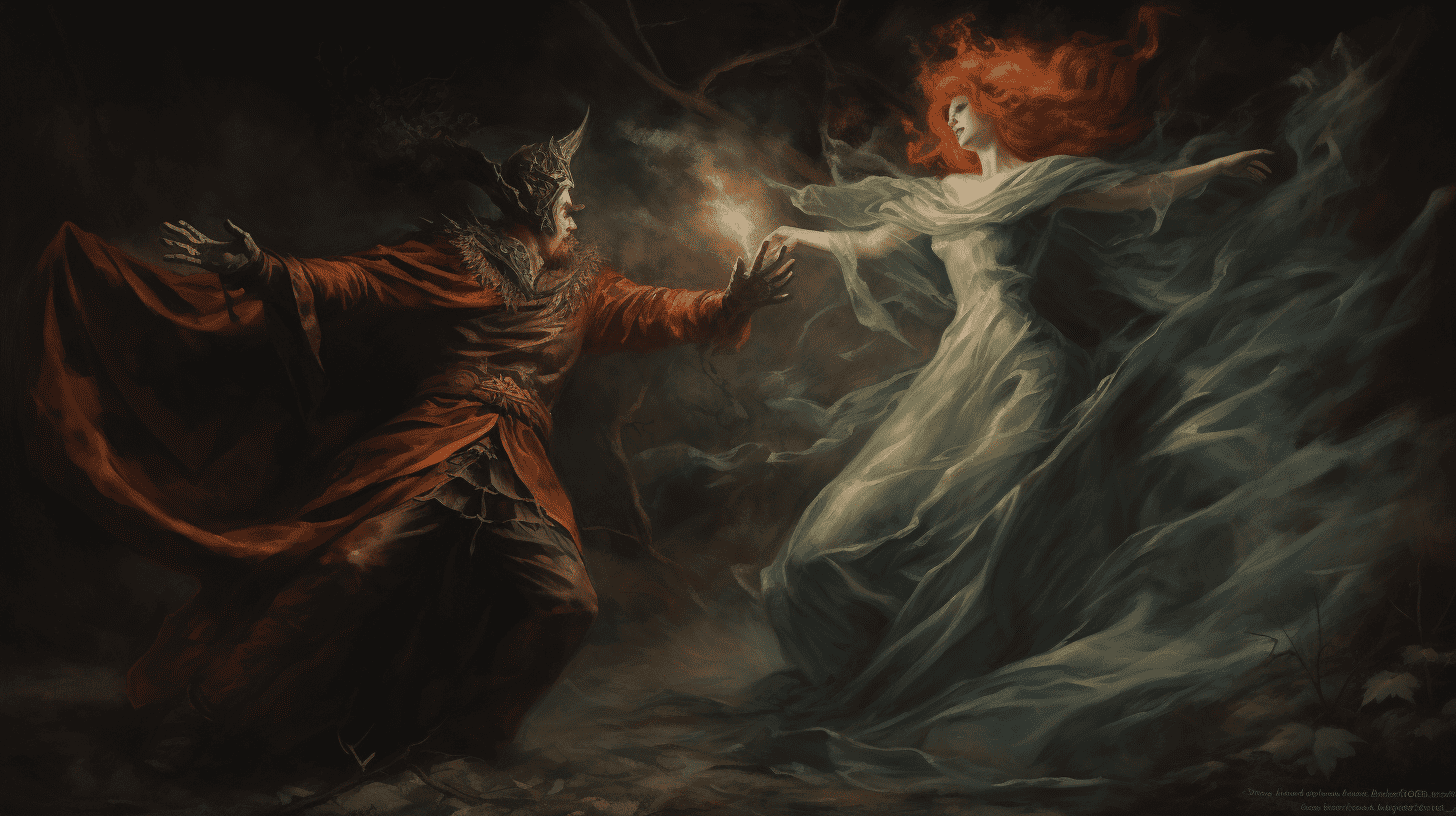For those of you who wonder why there’s a connection between Dungeons and Dragons and Baldur’s Gate 3, the answer is that Baldur’s Gate 3 was designed using the ruleset and mechanics found in Dungeons and Dragons 5e.
Players who are familiar with Dungeons and Dragons will, therefore, know their way around Baldur’s Gate with ease. A big portion of the player base has never been in contact with tabletop roleplaying games though, which has resulted in the game spawning a plethora of questions related to the game’s mechanics.
Two words that appear frequently in the game are “Advantage” and “Disadvantage” – whether it be in combat, during an action, or in a dialogue. They were both introduced in the fifth edition of Dungeons and Dragons to help streamline the somewhat scattered situational bonuses from the prior games.
Let’s start by looking at the meaning of each state and how you can obtain it.
What’s Advantage In BG3 and DnD?
In both games, the outcome of an action is determined by rolling dice. More specifically, a 20-sided die. Whenever a character makes an attack, tries to lockpick a door, or persuades someone in a dialogue, a dice is rolled to determine if the action will succeed or fail.
When a character has advantage, that character is given a second die that will be rolled at the same time and the die with the highest number will then be picked for the character’s action. Your modifiers (bonuses and penalties) are then added or subtracted from the roll.
This is extremely beneficial as it increases the chances for the player to hit attacks, succeed in dialogues, open doors, and much more. You can have advantage over another character or being in more than one way in any given situation – but the effect will never stack or grant more benefits.
So, how is it obtained?
How To Get Advantage In BG3 and DnD
Advantage can be obtained in many ways. We’ve compiled a list of different situations where a character will gain advantage to give an idea of the concept.
- When attacking while hidden (or surprising the enemy).
- When flanking an enemy, which happens when two allies are attacking from opposite sides of the enemy. (In Dungeons and Dragons)
- When the enemy you attack is prone.
- When the enemy you attack is restrained, asleep, or paralyzed.
- When one of the many spells or items in the game that grant advantage on the next attack is used.
- When the attacker has a high-ground position in relation to the target. (Only Baldur’s Gate 3)
- When a character has a class action that gives advantage. Rogue’s “Cunning Action” gives advantage on Stealth Checks, for instance.
- When the non-player character you’re trying to persuade is charmed or befriended using spells.

These are the most common situations that grant a character advantage when rolling – but there are many other occurrences that alter advantage on rolls, such as feats, which characters are given the first time at level 4, and racial traits which also grant advantage in certain situations.
It should be mentioned that any feat that allows a character to reroll a die, such as the Lucky Feat, only allows characters to reroll one of the two dice with advantage.
The benefit of being in a state of advantage is roughly equivalent to a +4 bonus to your rolls, meaning you’re 20% more likely to succeed on any roll. This makes advantage a very important mechanic to understand and master – as it is one of the greatest ways to impact the outcome of your actions.
In Baldur’s Gate 3, the maps are often very detailed and few battles are fought in locations where the environment can’t be used to your advantage. High-ground positions are one of the most easily accessible ways of doing it.
Another way to gain advantage over an enemy by using the environment is to shove said enemy off a ledge high enough to cause the creature to be prone after the fall.
What’s Disadvantage In BG3 and DnD?
Characters who are in a state of disadvantage in any given situation are also given an extra die to roll with but instead of picking the one with the highest number to determine the outcome, the die with the lowest number is picked.
You want to avoid being in a disadvantage at all costs, as you’ll need to pass the roll with two dice instead of one.
For instance, imagine that you need to roll 15 to pass a Wisdom check but the character rolling is at a disadvantage. When the character rolls, the dice must both pass 15 in order to pass the check – as the lowest number is picked. This state often produces failed actions and misses.
For obvious reasons, you’ll want to place your own characters in a position where they’re given advantage while the enemy is forced to roll with disadvantage, but accomplishing this isn’t always easy.
How To Avoid Disadvantage In BG3 and DnD?
So when are characters placed in a disadvantageous position? Some of the most common situations tend to be when:
- You attack in the darkness without darkvision.
- You make a ranged attack when the target is in melee range.
- You’re wearing armor or equipment that you aren’t proficient in.
- You’re frightened, blinded, or affected by other status effects that cause disadvantage.
The easiest way to avoid being at a disadvantage is to use equipment that you’re proficient in, as equipping a piece of armor that you’re not proficient in has crippling consequences.
Furthermore, ensuring that your character isn’t over-encumbered and that any hindering conditions that are inflicted on them are removed immediately are solid ways of preventing disadvantage.
This state can, as mentioned before, be caused by spells too. An example is Blur, a spell known to Wizards and Sorcerers in Baldur’s Gate 3 that puts the target at disadvantage. These spells are more useful than one might think, especially if you’ve grown used to brute forcing it.
Not only do they impose disadvantage on an enemy, making them much less likely to succeed, they can also make an enemy with advantage lose the advantage.
How? Well, advantage and disadvantage can cancel each other out.
(Below is an example where the environment causes both states, which cancel each other out. The same could be achieved by casting Blur on the target with advantage.)
A character could, for instance, be positioned on a high ground, giving the character advantage – while the character’s target is positioned in the dark, putting the same character in a state of disadvantage. The two states will then cancel out, resulting in a neutral roll with one die.
Wrapping Up
Rolls are, like it or not, a fundamental part of the game, and learning how to cope with these mechanics is most likely going to make the experience even more enjoyable.
In Baldur’s Gate 3, players are directly responsible for out-of-combat rolls, such as rolls in dialogue and lockpicking – the rest of the rolls are handled in the background by the game.
The same can be said for Dungeons and Dragons, where the Dungeon Master handles some of the rolls and the players cast the rest.

